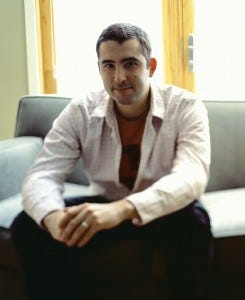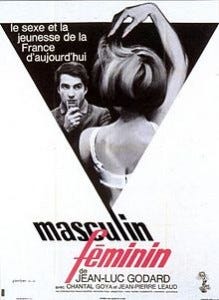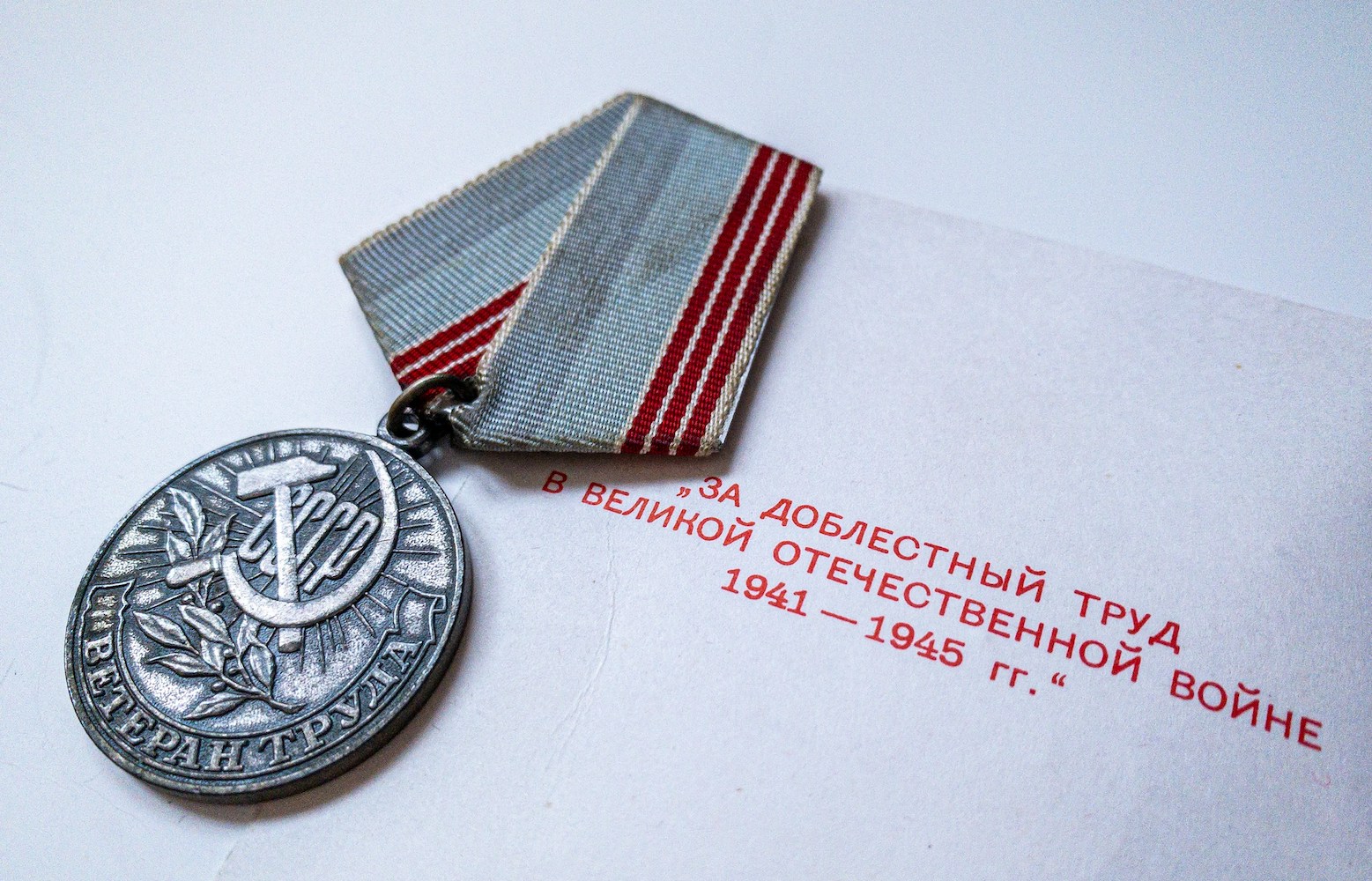interviews
Lost in the Woods with Joe Meno

by Julia Jackson

Joe Meno is the author of a ridiculous number of excellent novels, most recently Office Girl (Akashic Books), which will be featured on Electric Literature’s Recommended Reading on July 25. Joe will be reading from Office Girl tonight at McNally Jackson, along with Nathan Larson, author of The Nervous System. If you’re in the city, please join us! (Word on the street is THERE WILL BE SNACKS.*) [*Editor’s note: There will actually be wine! And I will be carrying a jumbo packet of strawberry twizzlers, come find me.]
Last week, Julia Jackson sat down with Meno over the internet to talk about writing, art, New Wave cinema, handjobs and e-publishing. Here is what happened:
Julia Jackson: I’m assuming that once reason you set Office Girl in 1999 is because you were around Jack and Odile’s age then. I was wondering what is essential to the book to have it set in that time, and what is uniquely special to the end of that decade/century/millennium?
Joe Meno: Yeah, the first thing was the answer you provided, which is I was twenty-five in that era, and looking back now — twelve or thirteen years later — I just feel so incredibly lucky to have experienced my twenties during a period when the biggest national problem we had was whether or not the president had been sleeping with this young woman. That afforded me so much freedom to engage in these ridiculous, self-indulgent experiences, like making zines, or being in bands that only ever played one show — and just being able to focus on the questions of art. Today is a very different kind of environment for a young person. One of the central ideas behind the book is that there are these great moments, and they happen, and there are these people that you meet, but then they’re gone. And it seemed like the late 90s was really prosperous and progressive, but — for good and bad — it feels like that moment is gone, and we probably won’t have another time period like that. The book was reflected in that brief era. There’s also something in the aesthetics — it’s basically like a zine, which was what I was doing at the time.
Also, it usually takes me about ten years to figure out what happened to me. I wrote Hairstyles of the Damned when I was twenty-eight, so it was ten or twelve years after my high school experience. Now I’m thirty-eight, so I’m writing about my twenties. Probably about ten years from now I’ll be writing about having kids and my thirties. For whatever reason, I just need that distance.
JJ: Why was it important to you that this book included Cody Hudson’s drawings and Todd Baxter’s photos?
JM: After I finished the book, I realized it was about single moments. When I started writing the book, I didn’t know that was what it was going to be — although, as I was writing it, I was trying to capture that on the page. To capture a single moment, the way a still photo does, or a piece of graffiti. I tried to do it through the language, with lots of white space — there’s a bunch of short chapters.
I was having lunch with these two guys, who are really good friends of mine — Cody and I had done this book a few years ago together, Demons in the Spring, and Todd Baxter has shot a bunch of my covers — and we were talking about how to get a single Poloroid, but on the page. And they were just like, “Why don’t you just put a Poloroid there?”
The book is very much like a collage, or a zine. When we first started designing it, it was like a Jean-Luc Godard film: early 60s,

Band of Outsiders and Masculin, féminin, which had this collage-like quality to them, with text, stills, and jump cuts, and we really tried to capture that in the book. Even the spirit of those early Godard films was definitely present throughout. Basically we wanted to make a New Wave film, but in book form.
JJ: Your books tend to rely a lot more on music and art than a lot of books tend to do, and I think that’s really interesting and fresh because writing is so solitary, and it seems like you’re able to make it a more collaborative form.
JM: That’s when it starts to get to the bigger question of: In 2012, who are books for? Who is literature for? The feeling I’ve had over the last couple years is there’s this increasingly shrinking, narrow audience. I see these really talented writers who seem to be only writing for other writers, and this conversation is getting smaller. And it seems like it’s getting only smaller and smaller over the last hundred years — and that’s okay, because it affords a writer like me a lot more freedom to experiment. In Chicago, we have this amazing modern jazz scene. You go to shows, and there’s ten or fifteen people there. Guys like Ken Vandermark and Mike Reed are doing this amazing stuff, and they get MacArthur Genius grants so they don’t have to worry about selling two million records. That question of audience is really kind of central. The question that I keep thinking about is making a book that feels compelling and interesting and sophisticated but also doesn’t turn people away or feel inaccessible. People who love music or film or art might also want to pick up a novel. But it also seems like these forms are exclusive. Somehow over the last twenty-five years, people who love music only really love music.
The books have become a way to work some of these ideas out. I grew up playing in bands. The people whose work I most admire are visual artists. This book was a kind of experiment. For whatever reason, Marie Claire reviewed the book and gave it this great review, which I thought was amazing. Amazon picked it up as a Best Book of the Month. It’s interesting, because when we were making the book I thought it was going to be this very slight thing that people who loved Godard would get excited about, so it’s interesting to see people in a wider audience respond to it.
JJ: The way you presented the characters was as vulnerable in parts, and shallow at parts, and very “indie” and twee, but also very earnest. The book had its more fucked-up moments, but overall I thought it was very sweet — and I thought it was kind of a ballsy move to make something that was so genuine, and not ironic.
JM: Yeah, it was scary. It’s a lot easier for me to write stuff that’s dark. There’s an armor that you can hide behind with that, or something that is satirical, where you’re laughing at somebody. The characters are based on people that I knew, or people that I was, so I tried to make them complex. Hopefully the characters are, at times, really endearing, but at other times they’re really obnoxious. That’s unfortunately not just a part of being in your twenties. That’s just people.
In some ways, Office Girl is a love story. That was really frightening when I realized that. To be like, Oh, I just wrote this love story with a pink cover. But that’s just what it became, so I wanted to make it the most interesting version that it could be. I still feel a little — not concerned, but are people gonna slam me for writing a love story? Or for writing about these people without being parodic or making fun of them or whatever.
But this is my eighth book, and I’ve just never been that kind of writer, no matter how goofy or infantile or seemingly ridiculous the characters are. There are amazing writers out there who are incredibly talented, but I feel like they loathe the people they’re writing about. When I look at the last twelve years, it seems like the trend in publishing is to write these big, 700-page books, where there’s this certain tone that feels a little bit sarcastic, or there’s this bombardment of information about economics or World War II. As I was writing the book, I thought, Well, that’s real interesting, and it’s an interesting use of the novel. But you could also use the novel to do this really small thing. This thing that would never be a film, or never be a TV series, because it’s only about these two people.
There’s a bunch of novels that follow that, they just haven’t been produced here in the last fifteen years or so. Books like Goodbye, Columbus, or a number of French novels from the 50s that have this really beautiful, bare, focused quality.
JJ: What are your feelings about handjobs?
JM: (Laughs.) In general?
JJ: Yes.
JM: (Laughing.) I have a couple feelings. The first is the Clinton handjob/blowjob — I don’t know why, and this probably dates me, but I feel like that was very of that era — I’m sure people still… I mean, I hope people still give handjobs, but it seems like that’s in the 90s. I know it wasn’t invented then, but it feels like, Oh, that’s a 1995 handjob. Like you could put it on the timeline, and go to a museum and see “Grunge music, Handjobs.”
The other thing is that it’s this act you commit with someone when you know it’s not really going anywhere. It’s not even intimate the way a blowjob is. It’s this non-committal, “I really don’t want to be alone” gesture. Almost nobody — as the giver, I’m guessing, or as the recipient — is all that excited about it. It felt like a good characteristic/occupation for Odile to have.
JJ: I read an interview from 2005 in Bookslut where you said, “So in my dedication or my ‘fuck off’ or whatever, to Judith Regan, I felt really strongly that this is it. This is the end. There is no way that people are going to tolerate buying the same kind of books over and over. Slowly, it’s starting to happen.” So now that it’s seven years later, “it” is still slowly happening, or have we succeeded, or has it tapered off?
JM: Well, only one of us is still publishing books. What’s interesting about her is (laughs) she had this deal that she’d always been doing. She started publishing at The National Enquirer, and she was then hired by Rupert Murdoch or whoever to form this imprint at Harper, and she was consistently putting out books in bad taste. She did that wonderful OJ Simpson book, and people were all in an uproar — but it wasn’t outside of anything she had done.
Yes, there’s still a beige quality to a lot of books out today; their covers are almost indistinguishable. There’s a river [on the cover], or a high heel… there’s certainly a sameness. I am really excited about what’s happening with technology. Electric Literature is a good example of being smart and willing to take risks, and not relying on this model that’s 120 years old. There’s no point in operating in this model from when the book was the most popular narrative form; from when radio, film, and all these things didn’t exist. Things have no choice but to change. Smaller publishing companies are going to use this to their advantage. These big publishers are like aircraft carriers — they can’t turn that quickly. The smaller publishers can make big decisions and change really quickly because they have much smaller staff, and are also more willing to take risks. When you’re in transition, you have to take risks. You have to be like, You know what, we’re going to put the book out in hardcover, paperback, and electronic form, because we want it to get out to the widest audience.
I feel, in a weird way, justified, to some extent. For me, it’s incredibly exciting to continue to work for places like Akashic, who are really at the forefront of publishing interesting, compelling work, and at the same time, Office Girl is out in every format. It seems to me that this is just common sense.
JJ: What is some advice that you really want your students at CCC to have when they leave your classroom?
JM: There’s a couple things. One is that you think writers just sit down and put on their beret and write their story. And it’s just not like that. You have to be willing to work, several hours a day, to develop.
The other is experimentation. For fiction writers to write a story and change the point of view, or the style — it costs nothing. If my friend Cody wants to experiment, he has to go buy canvas. It costs money, it takes up space. For whatever reason, a lot of fiction writers are reticent. They have this idea, but are unwilling to go walk off into the woods and get a little bit lost. That’s the only way I’ve ever written anything worthwhile or meaningful, by going blindly and seeing where the story goes. The story is always smarter than you are. You need to see what the characters are going to do and not force it. We have this intellectual idea about writing fiction, but the process is way closer to how musicians or artists work.
JJ: Yeah, that really makes sense, because what’s the worst that can happen? I mean, you’ll have wasted a few hours and have a Word document you don’t like. Big deal.
JM: Exactly. Office Girl is maybe 300 pages, but there were like 200 that didn’t make it. When I was younger, I wanted to make every word count. I couldn’t let go. I didn’t want to make mistakes. You have to be open to that weird joy of being lost.
JJ: I think our artistic brain is more intelligent than our logical brain, and sometimes we don’t give it enough credit.
JM: It’s way more intelligent, I am convinced. I have no faith in my intellect. I am way more interested in the intelligence of the imagination. The people I know who are the happiest or most content are the people who’ve mostly given up on solving problems intellectually. Of course you need scientists to make refrigerators or things like that, but on a day-to-day level, that’s where our answers are: in the imagination.
JJ: What is a great book that you fell in love with recently that you’d like to recommend?
JM: There’s this beautiful, bizarre French novel from 1947 called Foam of the Daze by Boris Vian. Michel Gondry is adapting it right now in France. It’s kind of like the French Catcher in the Rye. When you’re nineteen, you walk around with it in your hip pocket. It’s so delirious and truthful, and has this jazzy quality to it. Sometimes I’ll read something and realize I ripped off this thing that I wasn’t even aware existed. You find this writer from fifty years ago who had the same idea you had, except way before you. Reading this guy’s work — I feel like I ripped him off.
***
— Joe Meno is a fiction writer and playwright who lives in Chicago. A winner of the Nelson Algren Literary Award, a Pushcart Prize, a Great Lakes Book Award, and a finalist for the Story Prize, he is the author of eight books. His short fiction has been published in the likes of McSweeney’s, One Story, Swink, LIT, TriQuarterly, Other Voices, Gulf Coast, and broadcast on NPR.
— Julia Jackson is a fiction writer and teacher living in Southern California. She is the Contributing Editor for The Outlet.









